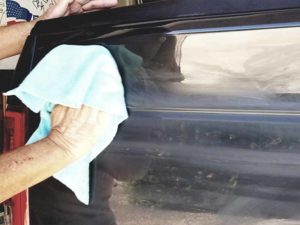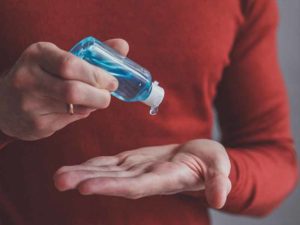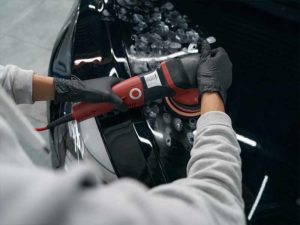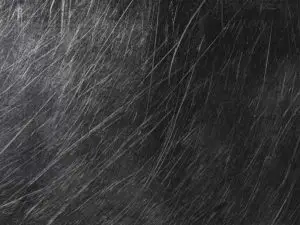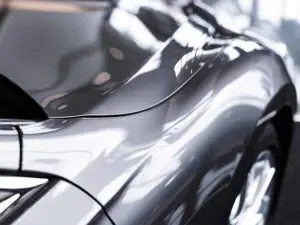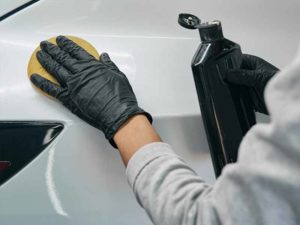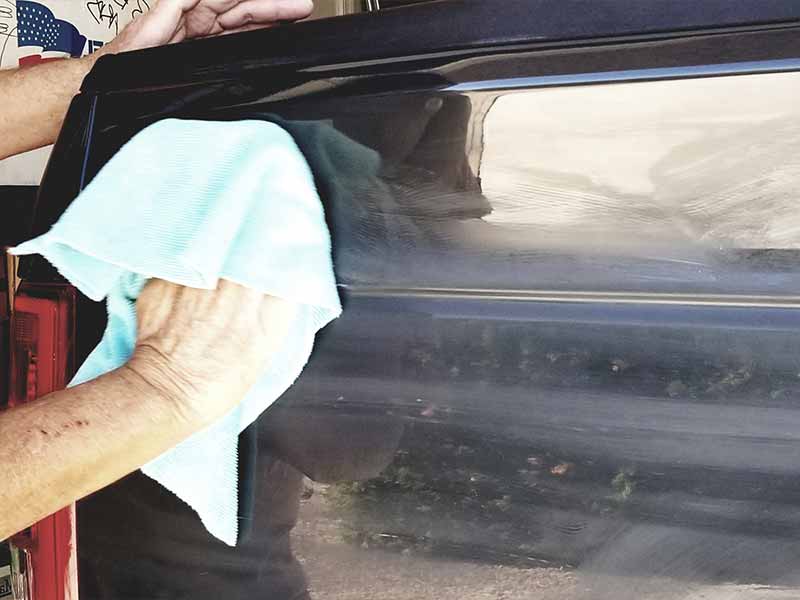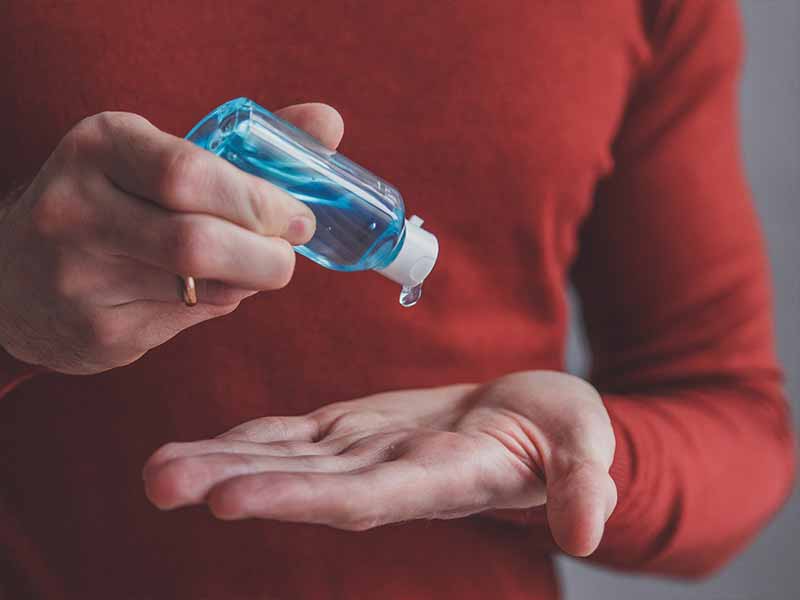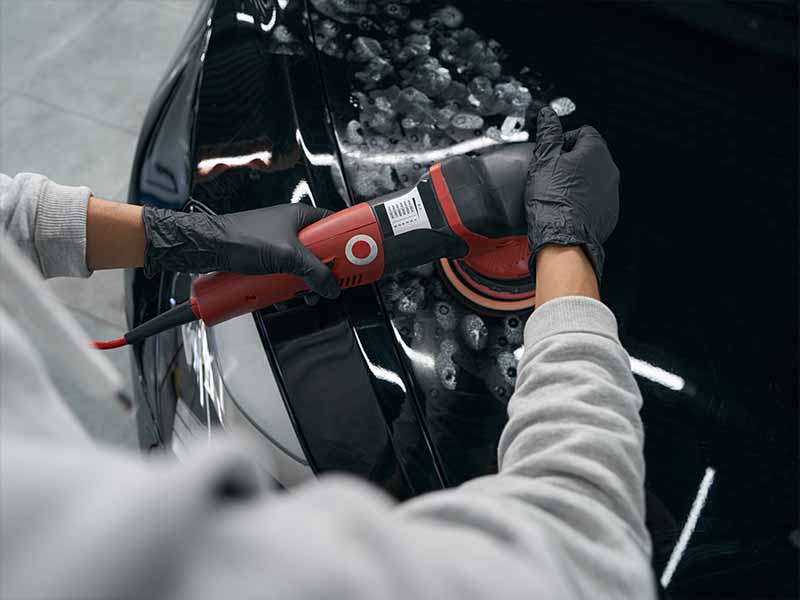Table of Contents
- Does Quick Detailer Spray Cause Scratches?
- What Is a Quick Detailer Spray?
- How Quick Detailer Sprays Work
- Quick Guide to Using Quick Detailing Spray
- Does Quick Detailer Cause Scratches?
- When Quick Detailer CAN Cause Scratches
- How to buff a car without burning the paint
- Pro Tip: For a Quick Clean, Use a Waterless Washer
- Helpful Links
- Conclusion
After learning about quick detailers, you might be eager to give them a try. They’re a fast way to give your car a nice shine, and it’s a very convenient product. However, there are skeptics out there that say that quick detailers cause scratches on cars. Is this true?
We’ll answer that question and more in the following sections.
Does Quick Detailer Spray Cause Scratches?
Quick detailer sprays can cause scratches when used on excessively dirty vehicles or if not using a microfiber towel. They’re meant to remove dust and minimal dirt. An unusually dirty or dusty car won’t provide enough lubrication to prevent swirl marks and micro scratches.
To prevent damaging your finish, only use quality detail sprays and use light pressure with a quality microfiber towel. Only use quick detailer on your paintwork if there is light dust and dirt. Don’t use heavy pressure or try to remove bird poop, tree sap, or other bonded road grime.
What Is a Quick Detailer Spray?
A quick detailer is a product that allows you to quickly give your car a nice shine. It should be used after your car is washed.
The purpose is to get rid of very light dust or bird droppings without going through a full car wash.
It’s also great at removing water spots and any fingerprints on your car after washing it.

How Quick Detailer Sprays Work
Quick detailer sprays have polymers, a few lubricants, and waxes built into the spray. When you spray the compound onto your car and wipe it away, you’re left with a thin layer of wax. As a result, your car has an added layer of protection and extra shine.
Meanwhile, the polymers will play with the surface tension of your car. This is how oils from fingerprints and water spots disappear after using a quick detailer.
The quick detailer doesn’t have any anti-abrasives added in. The lubricants that are included are just enough to evenly spread the detailer across your car, but not enough to pull dirt and grime from your car’s surface.
That means that you can’t use this product for cleaning cars.
For reference, soap and water works because there are abrasives and plenty of lubricants. This is why you can take a muddy car, give it a nice wash, and it’ll look brand-new.
Quick detailer spray is intended to be used for a quick polish. It’s mostly used by people before a show, immediately after a wash, or to quickly clean up a small, light mess.
Quick Guide to Using Quick Detailing Spray
We already hinted at the process, but it looks something like this:
Step 1: Prepare Your Towel
We always suggest starting with a microfiber towel that’s folded into quarters. This gives you 8 usable faces of the towel and ensures you’re always using a clean side.
You might want to grab a few towels in case the first gets too dirty. Make sure that these towels are made specifically for automotive use. Your car’s paint and topcoat are sensitive, so it’s easy to scratch them with the wrong towel.
Step 2: Spray Generously
Most quick detailers come in a spray bottle. Apply a generous amount to a 1 ft x 1 ft section of your vehicle. If your quick detailer liquid comes in a bottle, then you should apply it directly to a towel and wipe it on the section of your vehicle.
Step 3: Wipe Away
Use that folded-up towel to wipe the area. It’s typically better to wipe side-to-side without doing little circles. Start from the top of the section and work your way down.
That’s the entire process. The ease of use is what draws so many DIY detailers to pick this product.

Does Quick Detailer Cause Scratches?
This product is pretty universally used, especially in the detail community. It’s a quick way to give a mini wax to your car without using any special equipment or dedicating hours of your time. A lot of car owners will perform a quick detail before a show or meet to give their car a quick shine.
Whenever this product is used correctly, it won’t cause scratches. It’s perfectly safe to use on your car.
You might have heard rumors that quick detailers shouldn’t be used because they’ll scratch your car. As long as you do everything right, this won’t happen.
When Quick Detailer CAN Cause Scratches
People run into trouble when they don’t use the product correctly. Here are some of the major ways that a quick detailer can actually cause scratches.
Using When Your Car Is Too Dirty
The biggest problem is using a quick detailer on a car that’s too dirty. As we mentioned, there’s a lack of lubricants and abrasives in quick detailing products. Using it on a dirty car will cause the dirt to scratch your topcoat.
You’re basically taking the hard grains of dirt and rubbing them against your exposed topcoat. In a lot of cases, the scratches are noticeable. Hopefully, you realize it before it’s too late.
You should never use a quick detailer on a car that’s dirty in the first place. The best time to use it is right after cleaning your car thoroughly. Some detailers will use quick detailer to get bird droppings off of their car, but even that is a little risky.
Even dust could scratch your car if there’s too much of it.
Using the Wrong Towel
Another problem could be the towel you’re using. If you use a towel that has stiff fibers, you could really scratch your car.
You should only use automotive-specific microfiber towels for a project like this. They’re inexpensive and much safer on your vehicle than a bathroom towel, for example.
Using a Knock-Off Product
Finally, you could be using the wrong product. Believe it or not, there are knock-off quick detailers that don’t have the right chemistry in the bottle. When you use it, you can do some serious damage to your vehicle.
We suggest shying away from overly inexpensive options on the market. As great as it is to get a great deal on a product, it could lead to a lot of money wasted trying to correct scratched paint.

How to buff a car without burning the paint
The most important key to ensuring you don’t burn the paint on your car or truck is to be sure and use a dual action random orbital polisher. DA polishers are extremely gentle and very beginner-friendly.
Having and using a gauge for measuring paint thickness is another important tool to ensure that you keep a safe margin when polishing.
Always using the least aggressive method to achieve the results you’re looking for is also important. Start with polish and soft foam pads and step up to compounds and firmer pads only if you need to speed up the process.
Pro Tip: For a Quick Clean, Use a Waterless Washer
After this information, some people might be confused. If you can’t use a quick detailer spray to clean up a messy car quickly, then what can you use? This is where a waterless wash comes in. It still can’t handle very muddy vehicles, but it can wash a car without scratching it, unlike a quick detailer.
Helpful Links
Conclusion
Don’t be afraid to use a quick detailer on your car. It won’t cause scratches as long as your car isn’t too dirty, you’re using the right towel, and you have a high-quality quick detailer.
This product will save you a lot of time and make your car look showroom-ready with very little effort. For more detailing tips, explore the rest of our blog.
